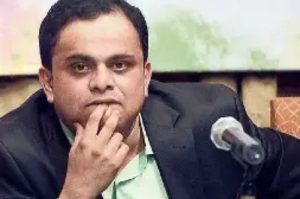Kolkata College Unions: Student and staff unions have long played a significant role in shaping the administrative and political landscape of educational institutions in West Bengal. However, the recent spotlight on Kolkata college unions reveals a concerning trend: many of these unions continue to function and exert influence despite no official elections being held for years. The ongoing controversy is raising serious questions about transparency, legitimacy, and the safety of campus environments.
Background: Union Elections in Limbo
Across numerous state-aided colleges in Kolkata, union elections have not taken place for the last three to five years. This delay—reportedly due to COVID-19, administrative stalling, and political maneuvering—has resulted in unions functioning without electoral mandates. Students and faculty allege that these unelected bodies continue to dominate decisions related to admissions, class allocations, campus discipline, and even staff transfers.
The absence of democratic elections, say observers, has bred a culture of entitlement and intimidation.
Kolkata College Unions: Key Institutions Affected
The issue is not limited to one or two colleges. Multiple prominent institutions in Kolkata are reportedly operating with “caretaker” student unions or self-declared union bodies.
| College Name | Last Election Held | Current Status of Union |
|---|---|---|
| Surendranath Law College | 2019 | Unelected union still active |
| Jogesh Chandra Law College | 2018 | Political dominance continues |
| City College | 2020 | Caretaker union making decisions |
| Sarsuna Law College | Never | De facto leaders control union |
| Netaji Nagar Day College | 2019 | Functioning without new mandate |
Note: Based on student interviews and internal administrative sources.
Allegations: Political Interference and Harassment
Students and activists claim that many of these unelected union leaders are closely affiliated with ruling political parties. Their influence is not symbolic—they are allegedly involved in everything from fee negotiations to hostel allotments, often bypassing college administration protocols.
A recent incident at a Kolkata law college, where a student was gang-raped by individuals with former student union ties, has further underscored the dangers of unaccountable campus power.
“They are untouchable. Even teachers hesitate to question them,” said a third-year student from a reputed north Kolkata college.
No Transparency or Grievance Redress
With unions functioning unofficially, no proper redressal mechanism exists for students to file complaints. Many grievance cells either lie dormant or are staffed by union-affiliated appointees.
- No annual reports
- No financial audits of union funds
- No meetings open to general students
The result is a toxic culture of fear and apathy, say student bodies.
Government’s Position
The West Bengal Higher Education Department has acknowledged the issue but has yet to announce a statewide election roadmap. Officials cite law-and-order concerns and logistical limitations post-COVID.
However, following growing public outrage, Education Minister Bratya Basu stated:
“We will ensure fair and transparent elections in every state-aided college within the next academic year. No student body should operate without democratic accountability.”
Until now, no formal notification has been issued by the state department.

Comparison with Other States
In contrast, states like Kerala, Tamil Nadu, and Maharashtra have resumed union elections and implemented guidelines to prevent political interference.
| State | Last Union Election Held | Political Affiliation Permitted? | Accountability Mechanism |
|---|---|---|---|
| Kerala | 2023 | Yes | State-monitored audit system |
| Tamil Nadu | 2022 | Yes | Ombudsman in each district |
| Maharashtra | 2023 | No (only independent bodies) | Court-monitored elections |
| West Bengal | Varies (many pending) | Yes | No uniform system |
Legal and Regulatory Context
- UGC Guidelines recommend that college unions be formed through direct elections within a fixed tenure.
- Lyngdoh Committee Recommendations (2006), which were upheld by the Supreme Court, state that:
- Student elections must be held annually.
- No individual can hold union posts for more than one term.
- Criminal backgrounds disqualify candidates.
Despite these norms, implementation in West Bengal remains inconsistent.
📄 UGC Guidelines on Student Elections
📄 Lyngdoh Committee Recommendations
Students Speak Out
Multiple protests have erupted in recent months demanding immediate union elections.
“Why should we be ruled by leaders who haven’t been chosen by us? This is not democracy,” said Nandini Ghosh, a final-year student at Surendranath Law College.
Student bodies such as the All Bengal Students’ Union (ABSU) and SFI are pushing for a statewide referendum on the issue, demanding:
- Mandatory elections by December 2025
- Biometric student ID verification during polls
- Real-time financial audits of all union expenses
Faculty Voices
Teachers are also divided. While many express concern over student safety, others admit that the absence of elected unions has allowed classes to proceed without constant disruption.
A faculty member (name withheld) stated:
“Sometimes it’s better without elections—there are fewer strikes. But this is no justification for subverting democracy.”
Way Forward
The demand for clean, accountable, and democratic student unions is growing louder. Experts suggest the following steps:
- Publish a Union Election Calendar: The Higher Education Department should announce clear timelines.
- Digitize the Election Process: Use secure platforms for nominations and voting.
- Strengthen Oversight Committees: Create an independent electoral commission for student polls.
- Introduce Union Conduct Codes: To ensure student safety and academic decorum.
Conclusion
The persistence of unelected and politically-backed unions in Kolkata colleges has become a structural concern. It undermines student rights, academic governance, and campus safety. With the public watching and student voices rising, the ball is now in the government’s court to restore democratic order and ensure educational institutions remain spaces of learning, not intimidation.
Until then, the question remains: Who really runs the colleges—students, or politics?
Also read: Home | Channel 6 Network – Latest News, Breaking Updates: Politics, Business, Tech & More

